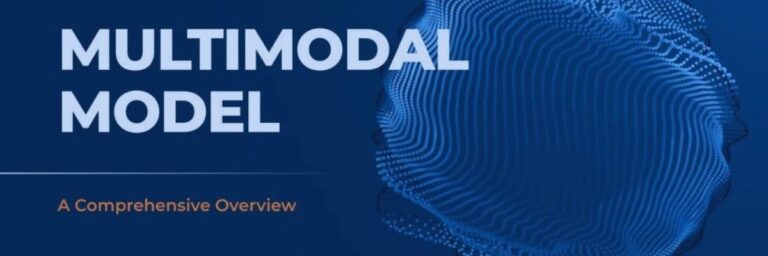When JPMorgan Chase deployed its Contract Intelligence (COiN) platform powered by machine learning, it successfully automated the review of 12,000 commercial credit agreements annually – a task that previously consumed 360,000 hours of lawyers’ time. Today, what once took seconds can be completed in seconds, with greater accuracy. Leading companies are rapidly transforming their operations with actionable AI.
A recent PwC survey found that nearly half (49%) of technology leaders have fully integrated AI into their core business strategies. This strategic adoption underscores AI’s pivotal role in driving innovation, enhancing productivity, and optimizing resources across various sectors. From streamlining supply chains to personalizing customer experiences, actionable AI is transforming operations and enabling businesses to stay ahead in the market.
Actionable AI – the practical application of artificial intelligence to solve specific business problems has become a key requirement for businesses. From predictive analytics and process automation to personalized customer experiences, forward-thinking businesses are leveraging actionable AI to transform operations and capture new opportunities.
Transform Your Business with AI-Powered Solutions!
Partner with Kanerika for Expert AI implementation Services
What is Actionable AI and How is it Different from Traditional AI?
Actionable AI is a subfield of AI that focuses on transforming data analysis into concrete actions and tangible results. It goes beyond simply identifying patterns or generating insights. Actionable AI empowers businesses to make data-driven decisions and automate tasks based on those insights.
Traditional AI excels at data analysis and pattern recognition. It can identify trends, categorize data, and predict future outcomes. However, it often stops short of translating those insights into actionable steps.
Actionable AI builds upon this foundation. It takes the insights generated by traditional AI and translates them into recommendations or automated actions. This actionable component bridges the gap between data and real-world impact.
Think of an AI system that analyzes customer data. Traditional AI might tell you which customer segments are most likely to churn. Actionable AI, however, would not just present this information; it might recommend specific marketing campaigns or loyalty programs to retain those customers.
Important Characteristics of Actionable AI
1. Data Integration and Processing
Big data from many sources, both structured and unstructured, can be processed by actionable AI. To ensure that the data is prepared for analysis, it employs sophisticated algorithms to clean, transform, and combine it. Enterprises can now leverage extensive datasets to obtain more precise insights.
2. Real-Time Processing
When it comes to analyzing data in real time, actionable AI is ideal, enabling organizations to react quickly to emerging trends and anomalies. For applications like fraud detection, where quick response might save large losses, this is essential.
3. Contextual Relevance
The recommendations provided by actionable AI are tailored to the specific context of the business problem. This contextual understanding ensures that the actions suggested are relevant and feasible, improving the likelihood of successful implementation.
4. Predictive and Prescriptive Capabilities
Actionable AI goes beyond descriptive analytics and includes prescriptive and predictive analytics to recommend the best courses of action and predict future trends, respectively. With the use of these dual abilities, businesses may make strategic plans in addition to understanding what is likely to happen.
5. Automation and Efficiency
Actionable AI greatly increases operational productivity by automating repetitive data analysis processes. It minimizes the need for manual intervention, freeing teams to concentrate on making strategic decisions and coming up with original solutions to problems.
6. User-friendly Interfaces
To ensure that insights are accessible to all stakeholders, actionable AI often includes intuitive dashboards and visualization tools. These interfaces make it easier for non-technical users to understand and act on the data.
Case Study: AI in Insurance
Learn how Kanerika helped a reputed insurance company boost its operational efficiency, reduce manual work, and enhance claims accuracy significantly by automating data extraction and consolidation using Generative AI, TensorFlow, and PyTorch.
From Insights to Impact: How Does Actionable AI Benefit Businesses
1. Enhanced Decision-Making
Actionable AI goes beyond data presentation to provide actionable insights such as recommendations, predictions, and suggestions that affect decision-making. Imagine having real-time information on client behavior or market trends. This helps businesses make more successful data-driven decisions.
2. Improved Efficiency and Automation
Repetitive tasks can be a major drain on resources. Actionable AI automates these tasks based on the insights it generates. This frees up human employees to focus on higher-value activities, like strategic planning and customer relationship management.
3. Increased Productivity and ROI
AI helps firms become more productive by streamlining processes and enhancing decision-making. Reduced time spent on manual tasks and more successful outcomes from informed decisions translate into a better return on investment (ROI).
4. Reduced Risk and Errors
Human error is unavoidable. Using machine learning techniques, actionable AI can scan large volumes of data and identify trends that humans would overlook. This enables companies to lessen process errors and proactively manage risks.
5. Personalized Customer Experiences
Customer experience is paramount in the current competitive environment. Actionable AI can analyze customer data to learn about their preferences and behavior. This gives companies the ability to tailor their product suggestions, marketing efforts, and customer support encounters, which increases customer happiness and loyalty.
Elevate Your Business Efficiency with Advanced AI!
Partner with Kanerika for Expert AI implementation Services
Actionable AI: Understanding the Inner Workings
1. Data Collection and Preprocessing
Data is essential to actionable AI. First, information is gathered from a variety of sources, such as sales data, social media interactions, customer relationship management (CRM) systems, and sensor data from Internet of Things (IoT) devices.
But raw data is rarely ready for evaluation. To guarantee that the data is correct and suitable for AI models, data pretreatment procedures like cleaning, deduplication, and formatting are essential.
2. AI Algorithms and Machine Learning Models
Once the data is prepped, it’s time to unleash the power of AI. Here, various algorithms and machine learning models come into play. These models are trained on the prepared data, allowing them to identify patterns, relationships, and trends within the data. Some common AI techniques used in Actionable AI include:
Supervised Learning: Models are trained on labeled data to learn how to map inputs to desired outputs. For example, a model might be trained on customer data to predict churn risk.
Unsupervised Learning: Models identify hidden patterns and structures in unlabeled data. This can be useful for uncovering customer segments or market trends.
Natural Language Processing (NLP): Enables AI to understand and process human language data, such as customer reviews or social media posts.
3. Converting AI Insights into Actionable Steps
The trained AI models analyze the data and generate insights. However, Actionable AI goes beyond just presenting insights. It translates them into concrete actions that can be implemented by businesses. Here’s how:
Recommendations: The AI system might recommend specific marketing campaigns based on customer data or suggest preventive maintenance actions based on sensor readings from machines.
Automated Actions: In some cases, Actionable AI systems can directly trigger automated actions. Imagine an AI system automatically adjusting inventory levels based on real-time sales data.
Decision Support: Even without complete automation, Actionable AI provides critical data and insights to support human decision-making. This allows businesses to make data-driven choices for improved efficiency and effectiveness.
Responsible AI: Balancing Innovation and Ethics in the Digital Age
Explore the intersection of innovation and ethics with Responsible AI
How Actionable AI is Transforming Businesses Across Industries
1. Supply Chain Management
Optimizing Inventory Levels: To forecast demand and optimize inventory levels, actionable AI analyzes sales data, past trends, and external variables like weather patterns. This lowers the possibility of overstocking and stockouts, resulting in more efficient operations and cost savings.
Predictive Maintenance: AI analyzes sensor data from machinery to predict potential equipment failures before they happen. This allows for preventive maintenance, minimizing downtime and ensuring smooth production flow.
Case Study: AI-Driven Prescriptive Analytics for Supply Chain Performance
Business Context
The client is a frontrunner in the USA’s perishable food production domain. Their complex supply chain network made production planning and scheduling challenging. Furthermore, the company’s production strategy relied heavily on demand forecasting, primarily derived from historical sales data.
Kanerika addressed these issues and optimized their productivity and supply chain using technologies like Azure AI, Power BI, PyTorch, and MS Dynamics 365. Here are the results:
2. Manufacturing & Quality Control
Automated Defect Detection: Vision systems driven by AI can be used to assess products on a production line with an unprecedented level of accuracy, detecting even the smallest flaws. This lowers waste and guarantees constant quality.
Process Optimization: To find inefficiencies and bottlenecks, actionable AI analyzes production data. Businesses can enhance production processes and efficiency by using this information.
3. Marketing & Sales
Personalized Marketing Campaigns: Actionable AI analyzes customer data to segment audiences and tailor marketing campaigns to their specific needs and preferences. This leads to higher engagement rates and increased conversion rates. In addition, there are many AI-powered content writing tools as reviewed in this Attrock guide that excel in content personalization and optimization, ensuring marketing efforts resonate with target audiences.
Lead Scoring and Sales Pipeline Management: AI can score leads based on their likelihood of conversion, helping sales teams prioritize their efforts and focus on the most promising opportunities.
4. Customer Service
Chatbots and Virtual Assistants: AI-powered chatbots can handle basic customer inquiries and resolve simple issues, freeing up human agents for more complex interactions.
Predictive Customer Service: Actionable AI can identify customers at risk of churn and recommend proactive outreach or retention strategies.
Amazon Nova AI – Redefining Generative AI With Innovation and Real-World Value
Discover how Amazon Nova AI is redefining generative AI with innovative, cost-effective solutions that deliver real-world value across industries.
5. Fraud Detection & Risk Management
Real-time Fraud Detection: AI analyzes transaction data in real-time to identify suspicious patterns and prevent fraudulent transactions. This protects businesses from financial losses.
Cybersecurity Threat Detection: Actionable AI can analyze network activity and identify anomalies that might indicate a cyberattack, allowing for swift intervention and mitigation.
6. Healthcare & Medical Diagnosis
Medical Imaging Analysis: AI can analyze medical images like X-rays and MRIs to assist doctors in diagnosing diseases with greater accuracy and efficiency.
Drug Discovery and Personalized Medicine: Actionable AI can analyze vast datasets to identify potential drug targets and develop personalized treatment plans based on a patient’s individual genetic makeup.
Case Study: AI in Logistics Industry
See how Kanerika’s expert AI services helped a leading logistics services provider improvd their business improved their operations, gained higher market visibility, and reduced their transportation costs by integrating AI into their workflows by implementing AI/ML predictive engine.
The Future of Actionable AI
1. Empowered by Emerging Technologies
The Internet of Things (IoT): Data generation will skyrocket as more devices are connected. Real-time decision-making at the network edge will be possible with the integration of actionable AI with IoT data streams. Envision a manufacturing floor where artificial intelligence (AI) instantly evaluates sensor data from equipment to improve output or anticipate maintenance requirements.
Big Data Integration: To handle ever-growing datasets and extract even deeper insights, actionable AI will make use of big data analytics. By doing this, companies will be able to fully utilize their data and make even better judgments.
Edge Computing: Making decisions in real time will require processing data at the “edge” of the network, which is closer to its source. Edge computing and actionable AI together will speed up analysis and reaction times, especially for applications that need quick action.
2. Explainable AI (XAI): Building Trust and Transparency
As AI becomes more complex, the question of “why” becomes increasingly important Explainable AI, or XAI, aims to make AI choices clear and understandable. As a result, people will have more faith in AI systems and be able to work with AI more successfully. If an AI system were to suggest a marketing plan, XAI features would provide context for the advice, enabling marketers to make sound decisions based on the AI’s insights.
3. Democratization of Actionable AI: Making it Accessible to All
These days, actionable AI isn’t limited to internet behemoths. Cloud computing innovations and pre-built AI solutions will enable companies of all sizes to leverage Actionable AI. This will level the playing field and make it possible for smaller companies to use AI and data to compete with larger corporations.
Types of AI Agents: Which One Does Your Business Need?
Explore the various types of AI agents and discover which one best aligns with your business goals to enhance efficiency and drive growth.
Case Study: AI in Healthcare
Fueling Business Growth with Strategic AI and ML Implementation in Healthcare
Business Context
The client is a technology platform specializing in healthcare workforce optimization. They faced several challenges impeding business growth and operational efficiency. Manual SOPs caused talent shortlisting delays, while document verification errors impacted service quality.
By leveraging AI/ML, OCR, and Python technologies, Kanerika helped resolve the client’s business hurdles and propelled growth. Here are some of the key solutions we delivered:
- Implemented AI applications in healthcare and ML algorithms for accurate document verification, streamlining operations, and improving efficiency.
- AI implementation helped reduce the operations team from 500 to 320 members, optimizing resources and enhancing scalability.
- Automated AI-based onboarding process for new professionals, increasing productivity and streamlining business support processes.
Stay Ahead of Your Competitors with Kanerika’s Purpose-Built AI Solutions
Kanerika is at the forefront of Agentic AI and AI/ML innovation, helping businesses across industries drive transformation, enhance productivity, and optimize resources and costs. With deep expertise in developing AI agents and custom Generative AI models, we design intelligent solutions that tackle operational bottlenecks and streamline decision-making.
Our AI-powered solutions have already delivered measurable impact in inventory optimization, sales and financial forecasting, arithmetic data validation, vendor evaluation, smart product pricing, and more. By leveraging advanced AI, we help businesses achieve faster insights, automation at scale, and smarter resource allocation.
From BFSI and manufacturing to retail, logistics, and healthcare, Kanerika empowers enterprises with AI solutions that adapt, learn, and evolve to meet their unique challenges. Whether you’re looking to cut costs, increase efficiency, or gain a competitive edge, our AI-driven approach ensures sustainable success.
Partner with Kanerika today and elevate your business with AI.
Achieve 10x Business Growth with Custom AI Innovations!
Partner with Kanerika for Expert AI implementation Services
Frequently Asked Questions
What is an action in AI?
In AI, an “action” is the specific step an intelligent system takes in response to its environment or internal state. It’s the system’s concrete output, the tangible effect of its decision-making process. This could be anything from moving a robot arm to selecting a word in a chatbot’s response. Essentially, it’s how the AI interacts with its world.
What are four types of AI?
AI isn’t neatly categorized, but we can broadly think of four approaches: Reactive machines handle immediate inputs without memory; Limited memory systems use past data for current decisions (like self-driving cars); Theory of mind AI (still largely aspirational) would understand and respond to human emotions; and finally, self-aware AI, a hypothetical future where AI possesses consciousness and self-awareness. These represent a spectrum of increasing complexity and capability.
What is action of artificial intelligence?
AI’s action isn’t a single thing, but rather a spectrum of capabilities. It involves mimicking human intelligence through tasks like learning from data, problem-solving, decision-making, and even creative generation. Essentially, AI acts by analyzing information and performing actions – complex or simple – based on what it’s learned. The specific action depends entirely on how the AI is designed and trained.
What is an example of explainable AI?
Explainable AI (XAI) shows you *why* an AI reached a certain conclusion, not just the conclusion itself. A good example is a loan application system that doesn’t just say “denied,” but also explains its decision by highlighting specific factors in the application (e.g., low credit score, high debt-to-income ratio). This transparency builds trust and allows for human oversight. Essentially, XAI makes AI’s “thinking” understandable.
What is the action function in AI?
In AI, the action function is the brain’s “output” deciding what to *do* next. It translates internal decisions (like recognizing an object or predicting the next move) into concrete actions in the real world or a simulated one. Think of it as the bridge between thinking and doing, directly impacting the AI’s interaction with its environment. Essentially, it’s how the AI expresses its learned knowledge or reasoning.
What is behaviour in AI?
In AI, “behavior” refers to how a system responds to inputs and interacts with its environment. It’s the observable actions and outputs generated by an AI’s algorithms, shaped by its training data and internal logic. Essentially, it’s what the AI *does*, reflecting its learned capabilities and limitations. Unlike human behavior, it’s completely deterministic based on its programming.
What is action recognition in AI?
Action recognition in AI is like teaching a computer to “see” and understand human actions in videos or images. It goes beyond simply detecting objects; it focuses on interpreting the movement and context of those objects to identify specific activities like running, jumping, or even complex interactions. This is achieved through sophisticated algorithms that analyze patterns in visual data, essentially enabling machines to understand the “story” unfolding in a visual sequence. It’s a crucial technology with applications ranging from security to healthcare.









